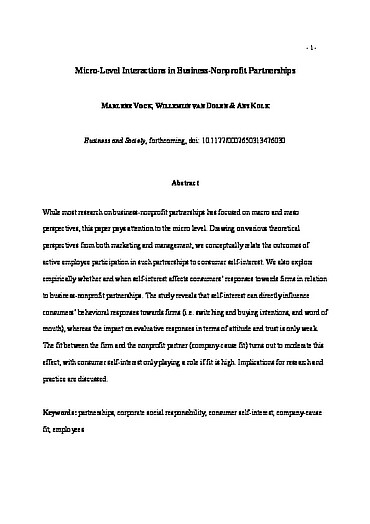Abstract
While most research on business-nonprofit partnerships has focused on macro and meso perspectives, this paper pays attention to the micro level. Drawing on various theoretical perspectives from both marketing and management, we conceptually relate the outcomes of active employee participation in such partnerships to consumer self-interest. We also explore empirically whether and when self-interest affects consumers’ responses towards firms in relation to business-nonprofit partnerships. The study reveals that self-interest can directly influence consumers’ behavioral responses towards firms (i.e. switching and buying intentions, and word of mouth), whereas the impact on evaluative responses in terms of attitude and trust is only weak. The fit between the firm and the nonprofit partner (company-cause fit) turns out to moderate this effect, with consumer self-interest only playing a role if fit is high. Implications for research and practice are discussed.
